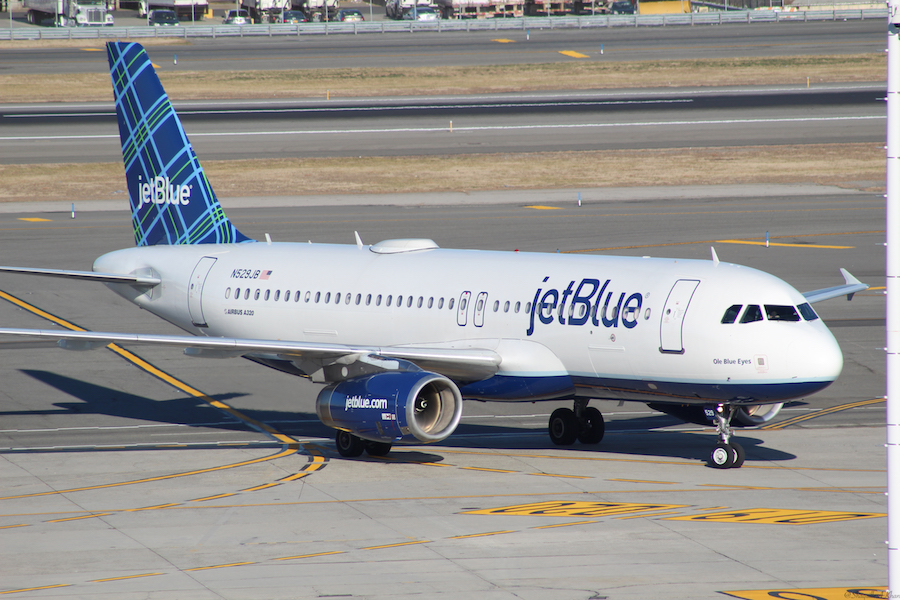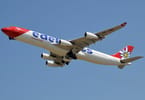The International Air Transport Association’s (IATA) released today the results of its latest business confidence survey of airline CFOs and heads of cargo. What are the strengths, weaknesses, and expectations for the coming year?
Airline profit expectations remain strong and in line with levels seen since April 2013, according to IATA’s quarterly survey of airline CFOs and heads of cargo in January, and there is confidence that air transport volumes will continue to grow over the next 12 months and that input costs and yields will remain stable.
A majority (72%) of respondents expect passenger travel to expand over the year ahead, but at a slightly slower pace than in the October survey, while growth in cargo volumes is expected to pick up over the next 12 months, at rates not seen since mid-2010, which reflects recent improvements in world trade growth and increases in business confidence.
Input costs are reported to have declined during Q4, mostly as a result of cost cutting measures, and respondents expect costs to remain broadly stable over the next 12 months, along with passenger yields that are expected to remain stable over the year ahead, moderating on the October survey in line with the slightly weaker outlook for traffic growth. Cargo yields are also expected to remain unchanged this year, despite expectations of stronger volume growth, and airline employment activity is reported to have increased during Q4, consistent with the improvement in financial performance that respondents indicated. The trend is expected to continue in the year ahead.
PROFITABILITY OUTLOOK
The results of the January survey show that a majority of respondents expect to see improvements in profitability over the next 12 months. The positive outlook has been broadly stable since the April 2013 survey, and in January 2014 over 70% of respondents were expecting profits to improve over the coming 12 months.
With respect to recent past performance, respondents reported seeing better profitability in Q4 compared to the year ago period. More than 55% of respondents indicated an improvement, but the proportion of respondents experiencing a fall in Q4 profits rose to 25%, compared to 20% in the October survey when asked about Q3 results. Nonetheless, performance for 2013 overall was an improvement on 2012, with airlines in some regions seeing the benefits of consolidation and efficiency gains. These improvements appear to be supporting the optimistic outlook for airline financial performance for the year ahead.
DEMAND GROWTH
Passenger traffic increased during Q4 2013, according to survey responses about the past three months. The rate of improvement in January slowed compared to the October survey – the proportion of respondents reporting increased growth in air travel fell from 77% in October to 65% in January. These developments are broadly consistent with air travel data, which shows continued strength in passenger demand, but at a slightly slower pace over recent months.
Looking forward, demand drivers remain broadly positive and suggest growth in passenger volumes in the months ahead will be at least at the current rate. The proportion of survey respondents expecting a rise in traffic volumes is a significant 72%, a strong result but slightly down on October (83%).
The survey results for cargo were positive and reflect important developments in the demand environment. Respondents reported seeing growth in air freight volumes over recent months, which is consistent with freight data. The outlook for cargo volumes continues to improve, with more than 66% of respondents expecting an increase in demand over the next 12 months. This is the biggest expected rate of increase since mid-2010, a very strong year for cargo.
INPUT COSTS
Survey respondents indicated a decline in input costs during Q4. Although jet fuel prices remained high during the last 3 months of 2013, they did ease slightly compared to the previous quarter. But probably more notable than developments in jet fuel prices, survey respondents pointed to cost cutting initiatives as reasons for the fall in input costs in Q4. The outlook with respect to input costs over the next 12 months is broadly stable.
YIELD ENVIRONMENT
The January survey results suggest that passenger yields were unchanged in Q4 2013 compared to the year ago period, after showing some increase in Q3 (as indicated by the October survey). The outlook has also moderated compared to the last survey, with yields expected to remain unchanged in the year ahead.
Consistent with excess capacity and weak load factors, cargo yields were reported to have declined in Q4. The proportion of respondents seeing a decline in cargo yields reduced in January (34%) compared to October (42%), but 47% of respondents said they saw no change in yields, such that on balance yields were reported to have remained in decline. Importantly, however, the outlook for cargo yields shows potential for slight improvement, and at the least no further decline is expected during the next 12 months.
EMPLOYMENT
Recent past and future expectations for employment in the airline industry were positive according to the January survey results, sustaining the improvement on 2012 when CFOs and cargo heads were indicating declines in employment. The increase in airline employment activity during the past three months is consistent with the improvement in financial performance that airlines are experiencing. The trend is expected to continue in the year ahead.
WHAT TO TAKE AWAY FROM THIS ARTICLE:
- Input costs are reported to have declined during Q4, mostly as a result of cost cutting measures, and respondents expect costs to remain broadly stable over the next 12 months, along with passenger yields that are expected to remain stable over the year ahead, moderating on the October survey in line with the slightly weaker outlook for traffic growth.
- A majority (72%) of respondents expect passenger travel to expand over the year ahead, but at a slightly slower pace than in the October survey, while growth in cargo volumes is expected to pick up over the next 12 months, at rates not seen since mid-2010, which reflects recent improvements in world trade growth and increases in business confidence.
- Airline profit expectations remain strong and in line with levels seen since April 2013, according to IATA's quarterly survey of airline CFOs and heads of cargo in January, and there is confidence that air transport volumes will continue to grow over the next 12 months and that input costs and yields will remain stable.






















